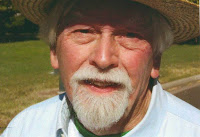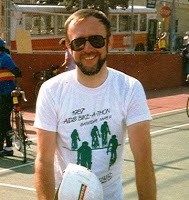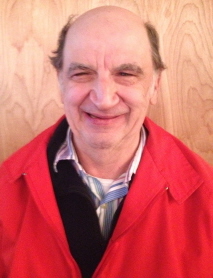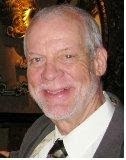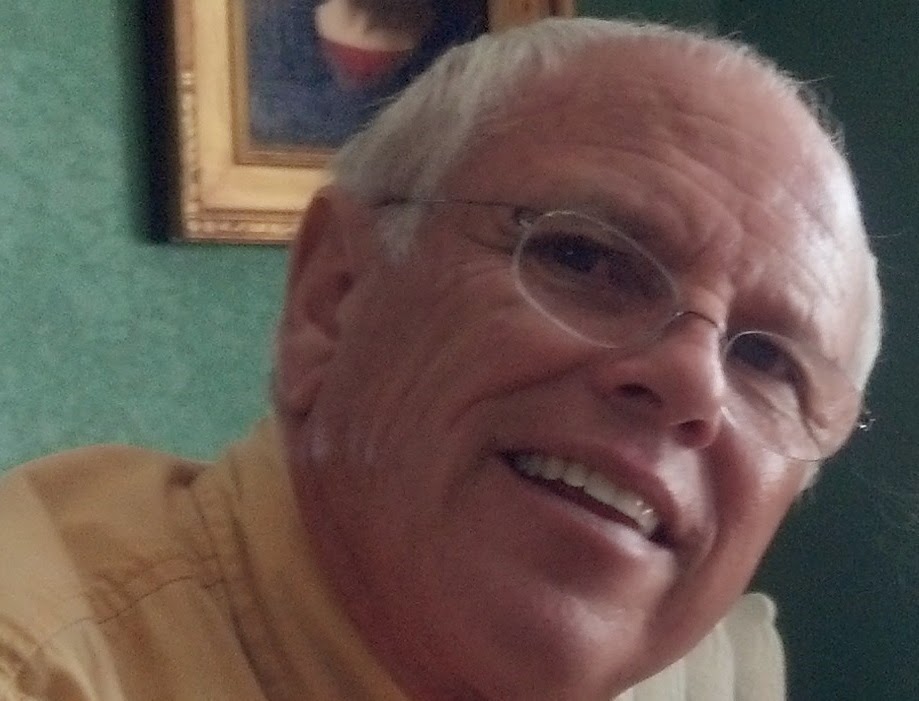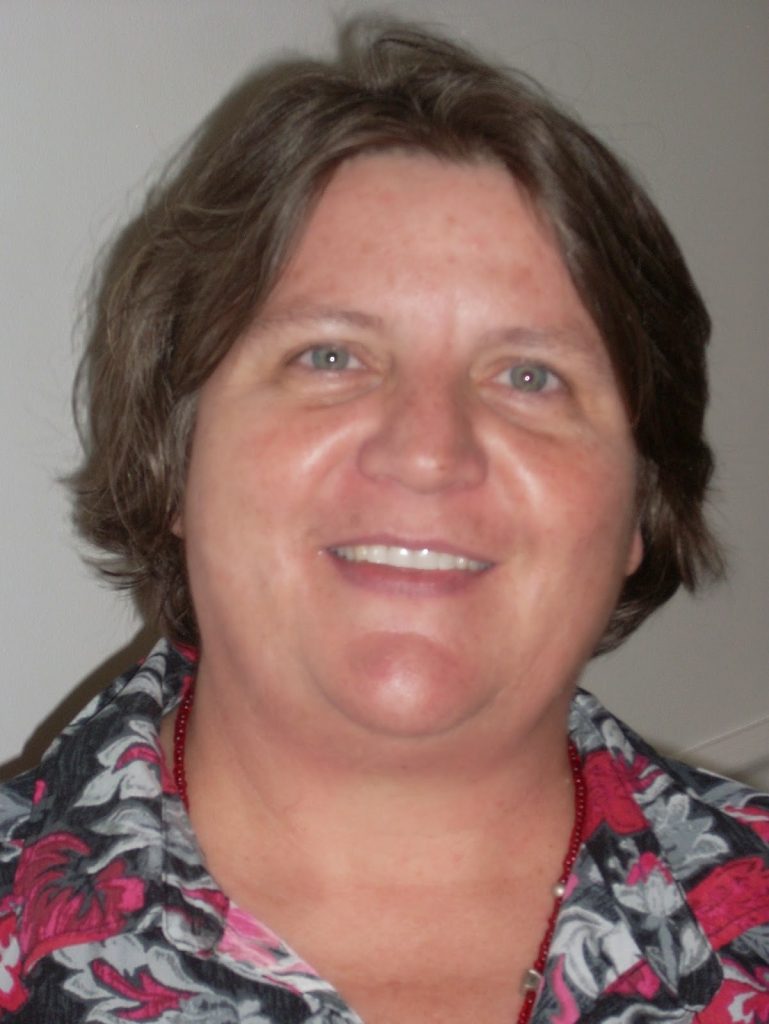This topic seems immediately to imply unwanted physical contact. Perhaps that’s what the person who chose it was thinking. I suppose one could, by extension, think of “touching the mind,” or “touching the soul.” But then again, maybe that’s stretching it; those approaches sound too philosophical for such a small presentation.
So, what can a person such as I write about unwanted touching? Any form of touching is foreign to my experience growing up and into my early adulthood. Coming from a rather Puritanical home where touching and expressions of love were extremely limited, I craved the kind of attention that psychologists have learned is so important for helping to develop happy, healthy people with a good sense of self-esteem. I’m speaking of wanted touching, of course. I would not have been comfortable with unwanted touching. In my case, that was not a problem. My having had a very controlled childhood, apparently I never was placed into a situation where I was vulnerable to unwanted touching.
So, rather than my speaking of my own limited experience, I’ll address the fact that the human need to be touched, to be held, to have sex, is a powerful need; and if a majority of people, or those people with power and authority, feel that some expressions are outside their experience and therefore not normal, they tend to make such expressions taboo. What human expressions are deemed to be abnormal and worthy of being demonized or punished has changed from era to era and country to country. This certainly is true with same-sex relationships and relationships of individuals of disparate ages.
What once was accepted may no longer be accepted. The spreading of the Judeo-Christian mindset and influence in the West and the Muslim belief-system in the Middle East is what turned same-sex attraction taboo and instilled greatly varying limits upon age-of-consent. Societies do change. To exist in contemporary society, one needs to makes certain rational accommodations if for no other reason than for self-preservation. Such accommodations, however, should not result in denying the reality of one’s own nature or the acceptance of the facts of human nature in general. Ignorance and fear should not negate empathy and love for other people. Unfortunately, that ignorance, intolerance, and even stupidity continue to be pervasive, and with terrible consequences to the health and wellbeing of individuals and society as a whole.
I have observed cases of persons suddenly developing extremely painful emotions with terrible shame and guilt when it has been drummed into them that they should, they must, harbor such destructive feelings. Churches with intolerant, antiquated dogma and social groups that have lived with such bias firmly ingrained for generations continue to contribute to a social atmosphere that harms rather than helps. The legal system and courts have exacerbated fears of human sex, both straight and gay.
In one case, the Denver County District Attorney charged a young man with ten felony counts for a several-month, mutually agreed-upon relationship because his girlfriend was not yet eighteen. Under the laws of age-of-consent in France, the relationship would have been legal. Those felony charges must have succeeded in causing life-long trauma to both individuals and also destroyed for life the reputation of the young man. I was so disturbed by seeing the young man crushed by the weight of authority and law that I could not stomach the idea of serving on the jury. I fortunately was able to have myself excused from the jury because of my work obligations.
In another example, had seventeen-year-old Daniel Radcliffe opened his play “Equus” in New York rather than London, he could have been arrested for public nudity because what was legal in England was not in New York. There are implied moral determinations here, too. What was moral in England would have been immoral in New York. A rational person would be right in questioning if this made any sense.
The news media also do their share of sensationalizing sex, too, turning human nature into titillating, yet shocking, tales of human depravity. The viewing audience and voting public, therefore, focus on sex rather than the important issues of the day.
Mind you, I’m not excusing unwanted touching or harming other people. Instead, I’m speaking of the profound need of humans for love and touch that often goes unmet. Years of psychological research has proved that emotional closeness and physical touch are essential for good mental and physical health. Without loving contact, the mind and body suffer. In addition, without them, the young, from frustration, may place themselves into undesirable situations, seeking that needed love and touch. A college friend of mine revealed to me that, during high school, he had been so desperate for love and touch that he briefly had turned to prostitution, not so much for money, but rather for hoped-for comfort.
I’ll relate a case of someone I met who described in detail his experience of touching. From his telling, it was hard to discern what his current feelings are regarding his experience, wanted or unwanted touching.
When I first met him, the scandal involving the Catholic Church was just breaking. At thirty, he still looked very boyish and attractive, although he also had made a macho place for himself in society by forming a successful concrete-cutting company. During a group-conversation about the apparent molestation of boys by priests, he ironically quipped, “None of the priests touched me. What was wrong with me?”
I say “ironically” because what he experienced was far more significant than a mere occasion or two being fondled by an adult. His experience also began at an age that even ancient Greeks thought to be too young, eleven; and the man was twenty-one.
There were stereotypical aspects to his childhood, such as a totally dysfunctional family and an absence of love. Lacking guidance, support, and affection, he was an easy target, as often is the case with such boys. Yet, the boy and the man apparently derived sufficient comfort and satisfaction from the relationship because it lasted ten years. One would assume that, as he grew into adulthood and gained some more mature perspective of his situation, he might have felt more comfortable withdrawing from the relationship if he had developed growing misgivings. Apparently, he had not.
As it turned out, it took an outside force to radically change his perspective. The disharmony and dysfunction within his family had only increased, so he sought professional help. Now, I know something about how to work constructively with patients, and immediately imposing one’s own, personal beliefs upon a patient, especially when such beliefs are intolerant and deny human nature, should be avoided. Apparently however, avoidance is precisely what this therapist did not do. When he was informed of the ten-year relationship, the therapist told the young man that he had been taken advantage of, abused, molested, scarred for life, that he always would feel guilt and shame. Not surprisingly, he consequently concluded that the therapist must be right and developed agitated feelings of having been scarred for life and shamed. So rather than coming to comfortable terms with his homosexuality, he became confused and angry.
All this occurred unbeknownst to the older man. To celebrate his young friend’s birthday, he had delivered to him a nice, new television set. Still feeling his new-found rage, the young man walked it over to the other’s home and smashed the TV on his front porch. Obviously, that was the end of their relationship.
Any thinking person who has become familiar with history can not escape the realization that such desires and relationships are ubiquitous and have existed for many centuries. This is not a limited nor new phenomenon. If any rational person takes the time and makes the effort to dispassionately analyze this fact, some logical questions are raised. What kind of touching is, in the truest sense, natural; what kind unnatural? What kind of intimacy is healthful; what kind unhealthful? If society or religion make normal human needs taboo, and people’s attempts to meet their desires become misunderstood, feared, corrupted, and unnatural, its logical to conclude that the resulting behaviors may become fear-laden, twisted and unnatural. Harm may come to one or both parties. Skewed behavior may turn even to violence.
Nobody should take advantage of another person, young or old, to selfishly attempt to satisfy a need. This is especially true with very young people who have not yet developed their minds and personalities to the extent where they can make rational decisions for themselves. That is precisely why the ancient Greeks assumed that young adolescents where not appropriate for intimate relationships, although courting older ephebes was not only accepted but celebrated. A thinking person might conclude that ancient Greeks had a more normal, healthful attitude about sex than modern societies. For any person to hold intolerant beliefs and to instill in others self-destructive thoughts and feelings not felt naturally is thoughtless and harmful.
Too little effort has been made by professionals and the general public to understand natural human needs, needs that have gone unmet with so many people for so long. I have read some surprising comments posted on YouTube regarding the film “For a Lost Soldier,” an autobiographical account similar to my description of the relationship told to me. There were several posted comments from viewers who, when young, apparently had lacked the love and touch they so desperately needed. Several of them said, “I wish that had happened to me.” How the relationship in the story happened was not the most healthful or desirable; however, I can understand the feelings of those who still felt hurt that they were denied a loving touch.
© 04/18/2013
About the Author
I have had a life-long fascination with people and their life stories. I also realize that, although my own life has not brought me particular fame or fortune, I too have had some noteworthy experiences and, at times, unusual ones. Since I joined this Story Time group, I have derived pleasure and satisfaction participating in the group. I do put some thought and effort into my stories, and I hope that you find them interesting.
